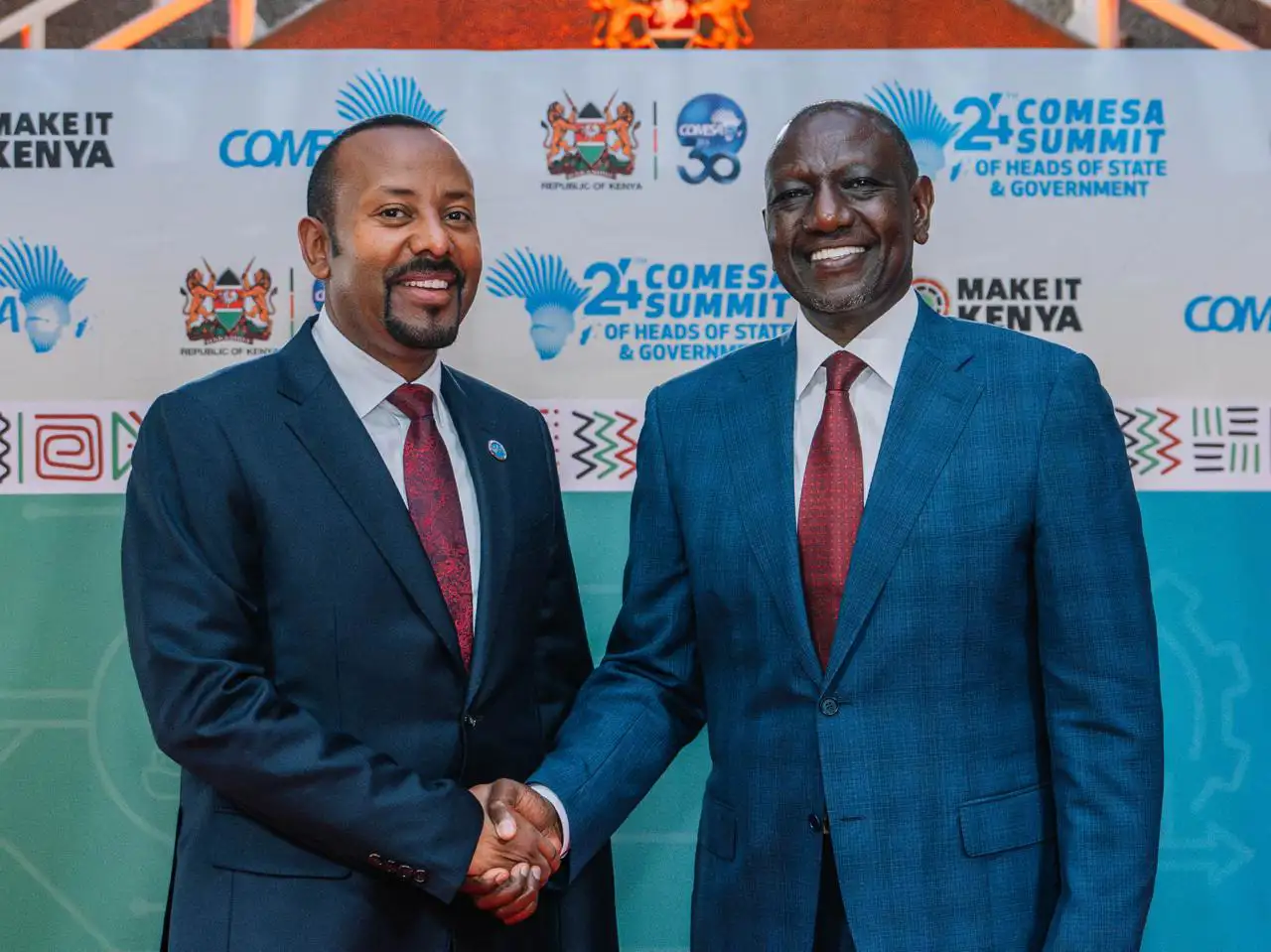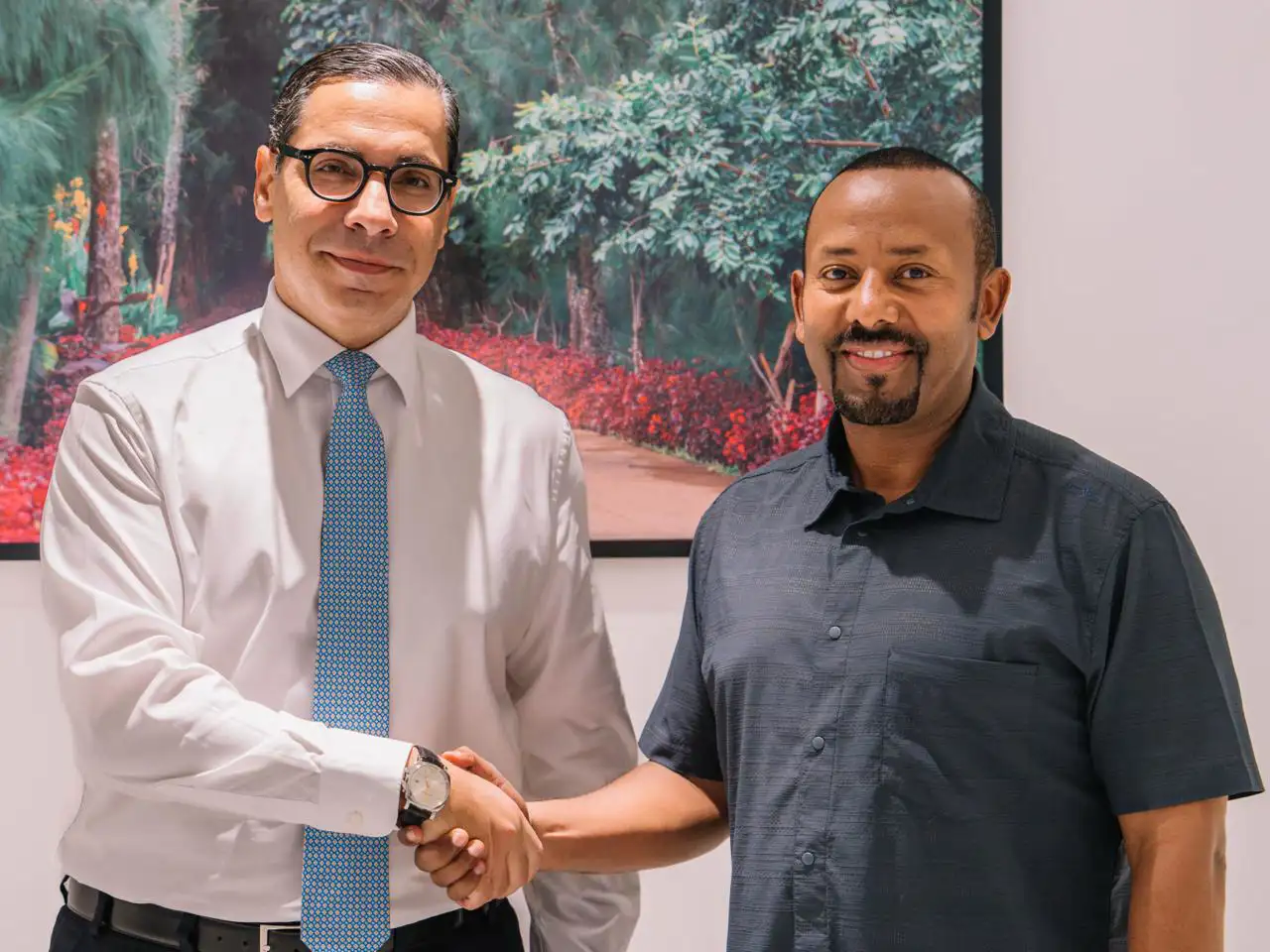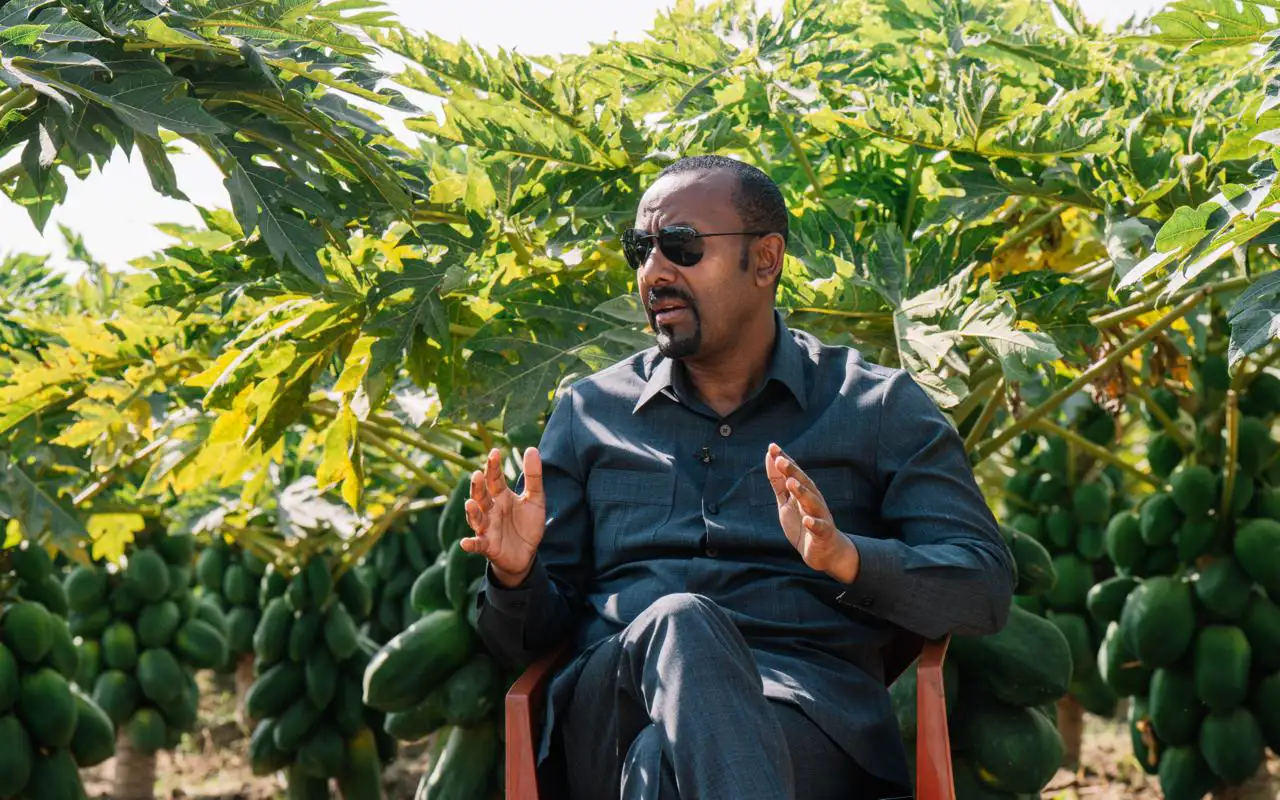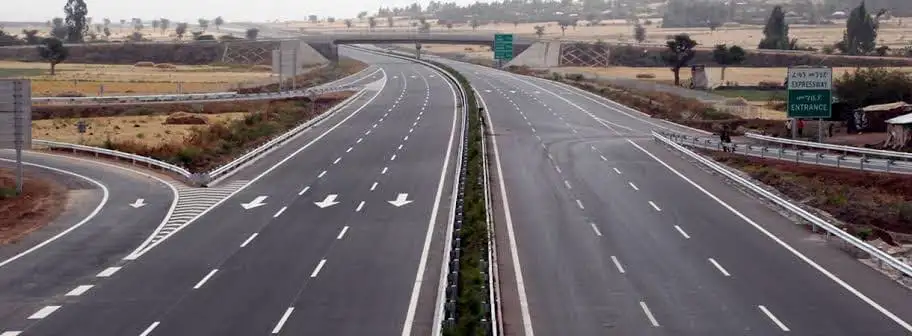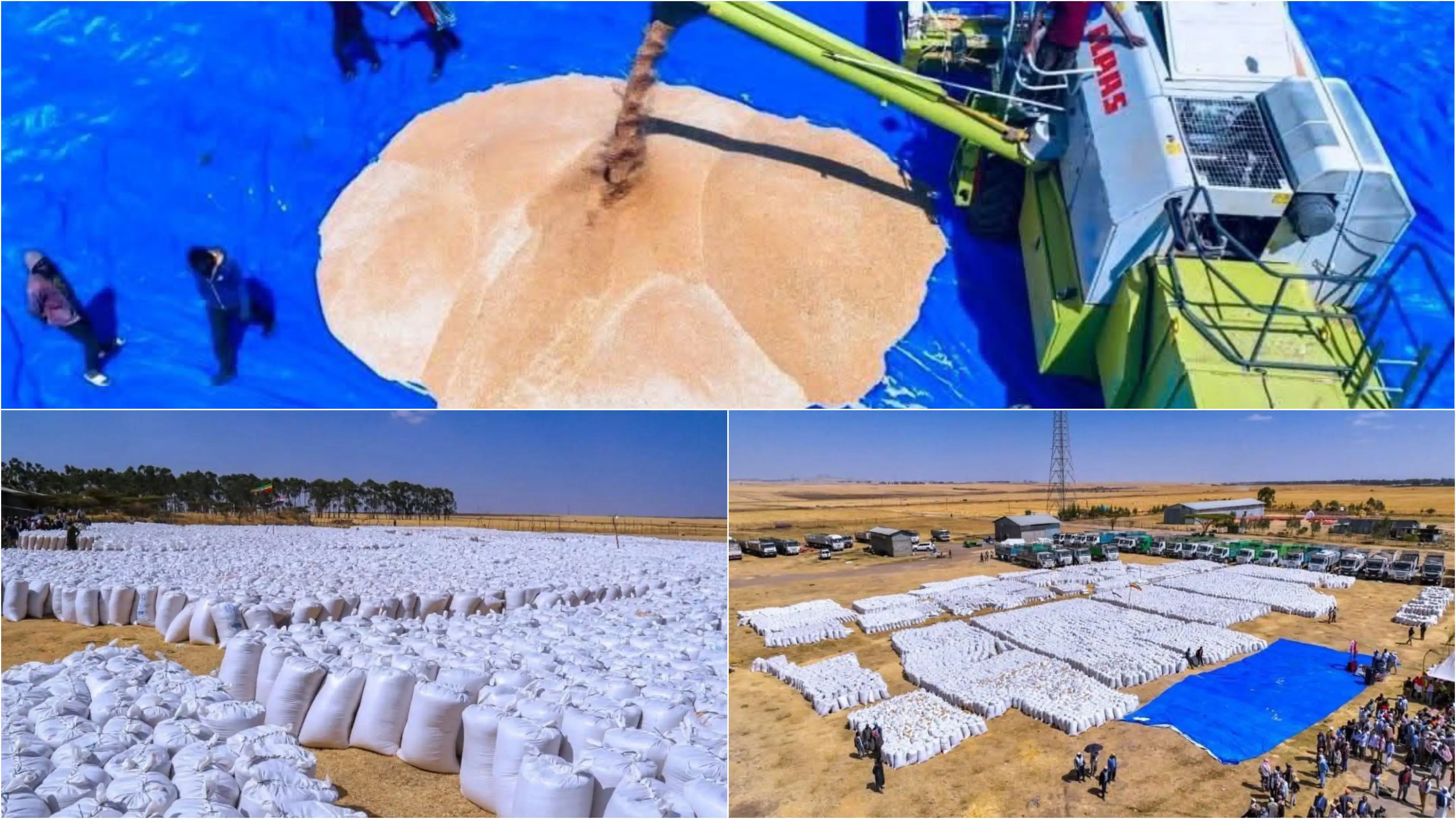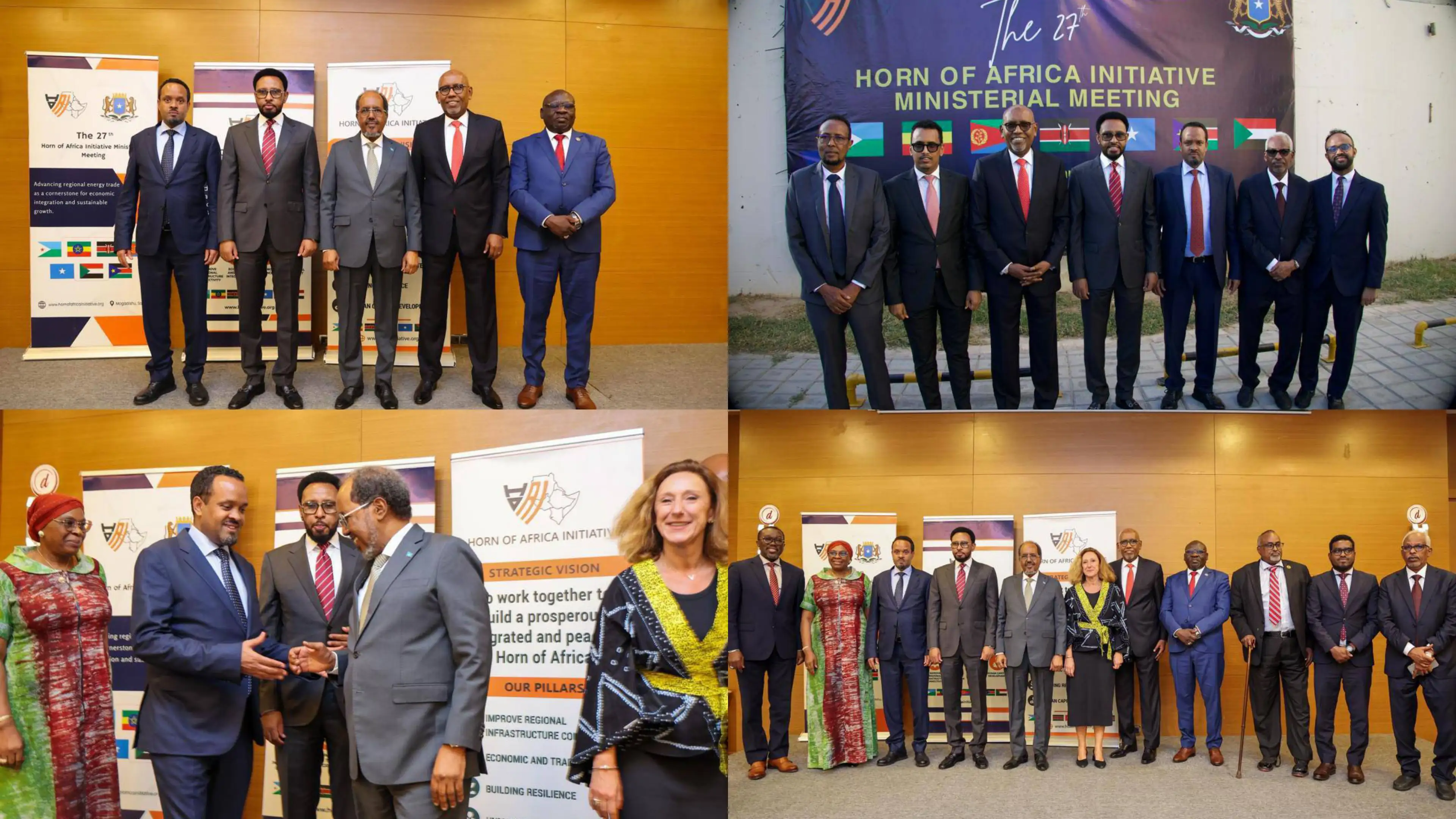October, 2025 has marked an intensive period of national and international engagement for Prime Minister Abiy Ahmed, with a strong focus on infrastructure, economic governance, and diplomatic cooperation. The prime minister’s activities underscored Ethiopia’s commitment to achieving self-sufficiency in key sectors and accelerating both urban and rural transformation.
Major Milestones in Infrastructure and Foreign Investment
The month was defined by the launch of several landmark projects, primarily in the energy and industrial sectors:
- Fertilizer Self-Sufficiency: The Prime Minister laid the foundation stone for a major urea fertilizer plant, a joint venture between Ethiopian Investment Holdings and the Dangote Group. The plant is designed for an annual capacity of three million tons and will utilize natural gas from the Calub fields, representing a critical step toward boosting agricultural productivity and achieving national self-reliance in fertilizer.
- Energy Independence: In the Somali Region, the Gode Oil Refinery (developed by Golden Concord Group Limited—GCL) was inaugurated. With a processing capacity of 3.5 million tons of crude oil and condensate annually from the Hilala oil field, the refinery significantly advances Ethiopia’s drive for energy independence.
- Ogaden LNG Project: The first phase of the Ogaden Liquified Natural Gas (LNG) Project in Calub was also inaugurated. This facility will produce 111 million liters of LNG annually and generate 1,000 megawatts of energy, strengthening the industrial base and supplying critical inputs for fertilizer production.
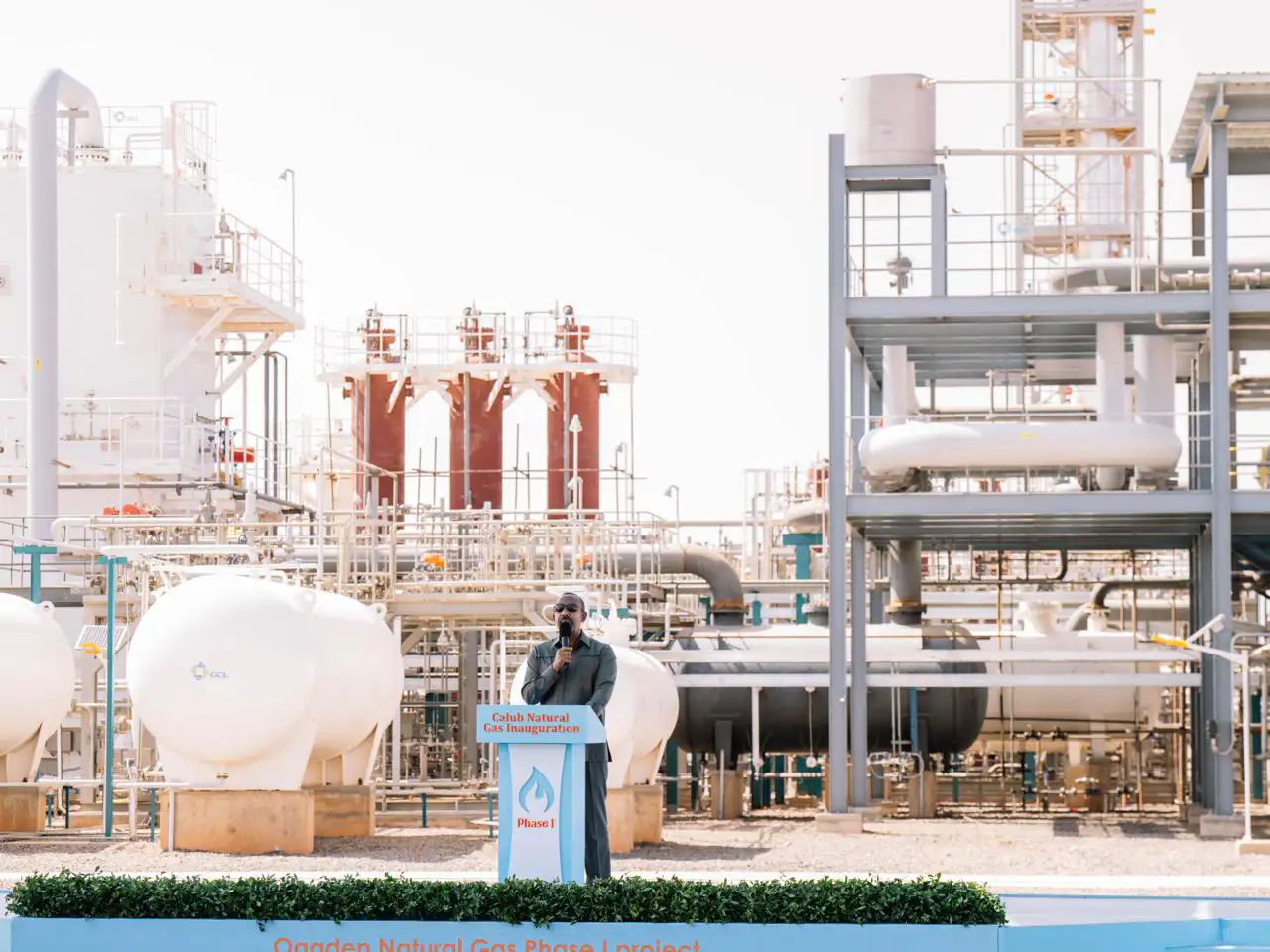
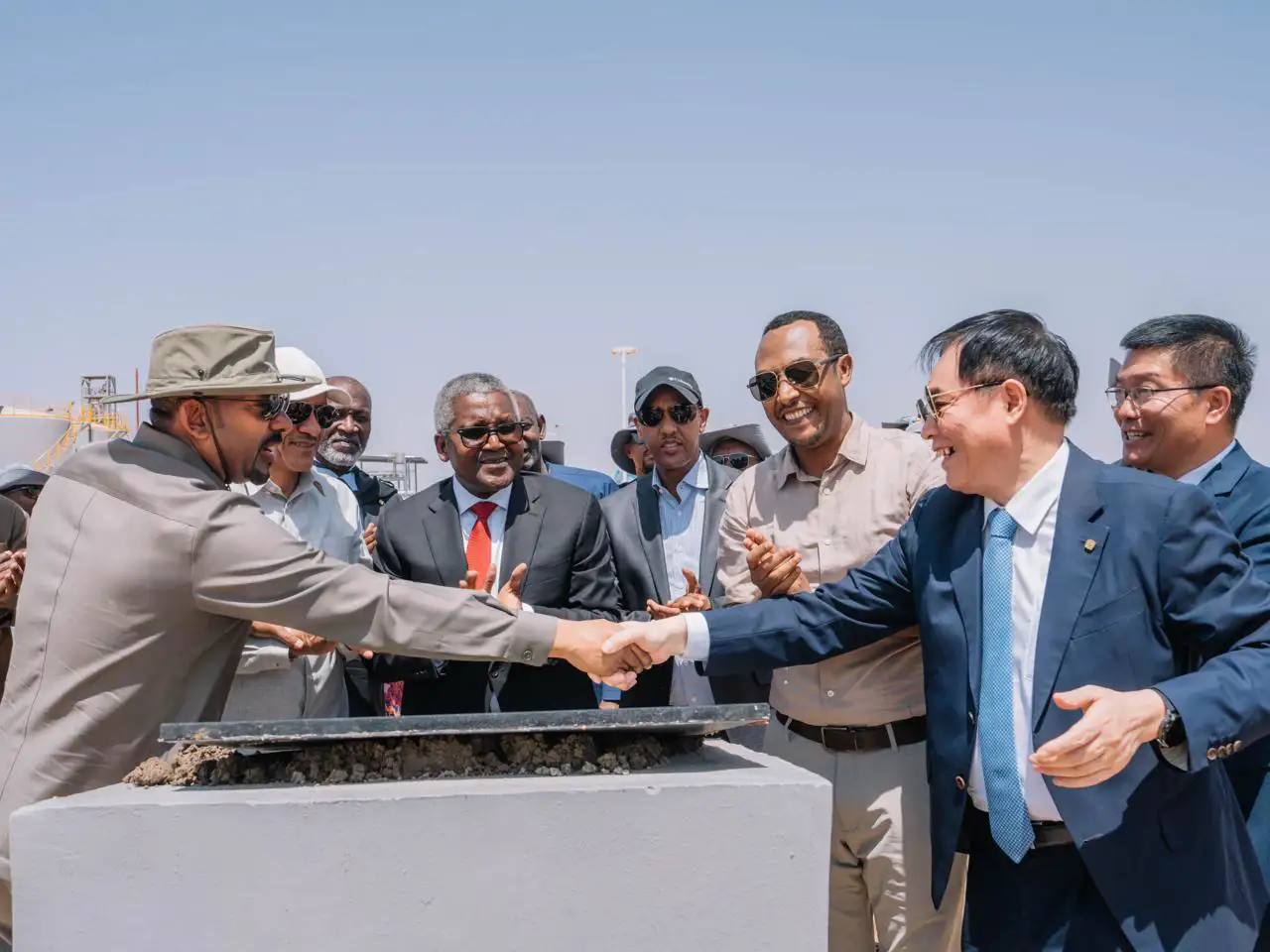
Urban Renewal and Development:
- In Jigjiga, the prime minister reviewed the rapid urban transformation, including the construction of thousands of new housing units and ongoing corridor development projects. He specifically praised the nearly completed Dine for Generations Project for its potential to unlock tourism and stimulate regional economic growth.
- In Addis Ababa, PM Abiy inspected the corridor development project extending from Sar Bet to German Square. Notably, this project encompasses the Garment Factory and Furi area, spanning 589 hectares. It is the second-largest urban corridor after Kazanchis and features 16.5 kilometers of asphalt roads, 33 kilometers of pedestrian walkways, and over 1,100 commercial shops, embodying a vision for modern, economically vibrant, and livable cities.
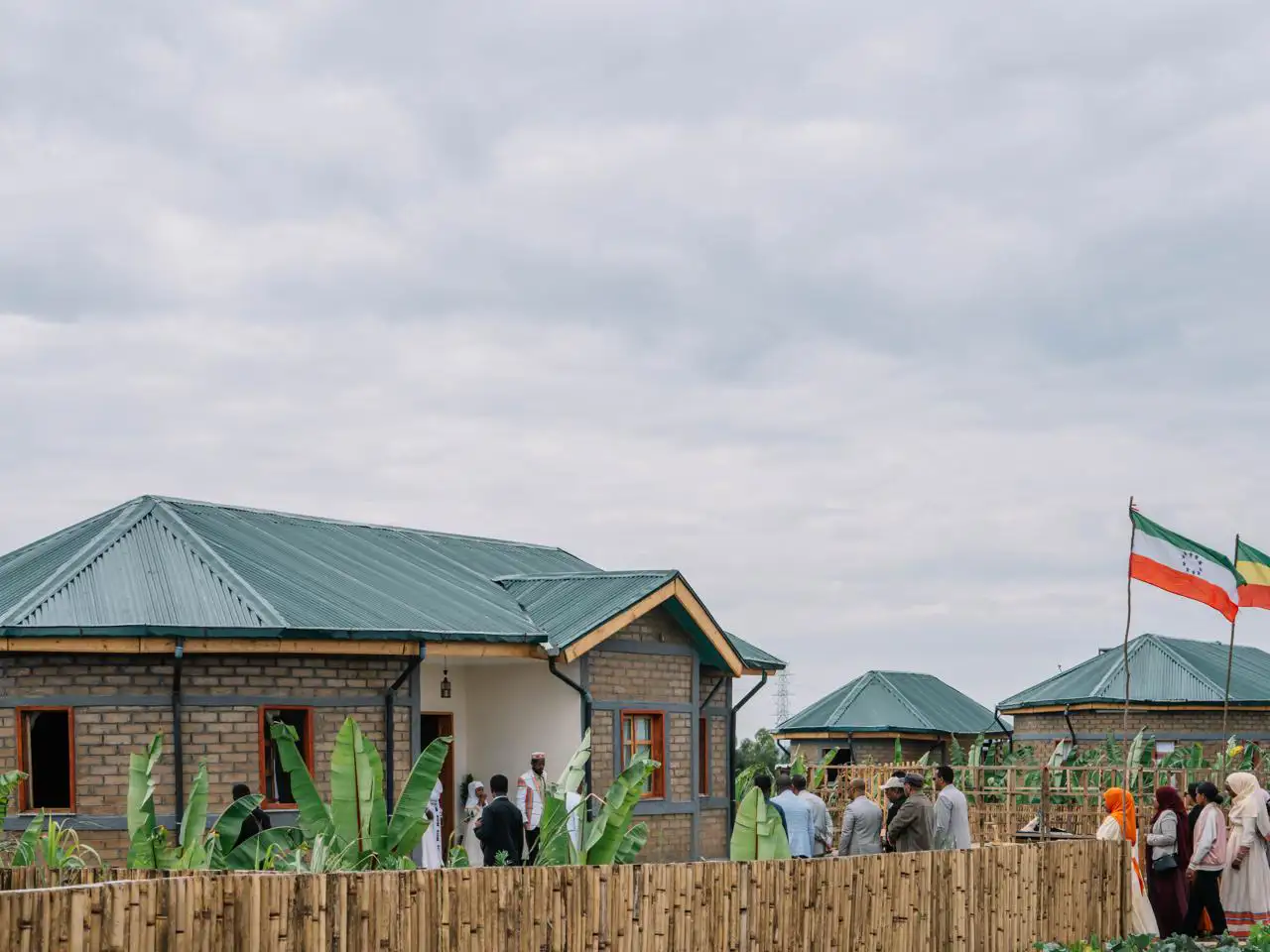
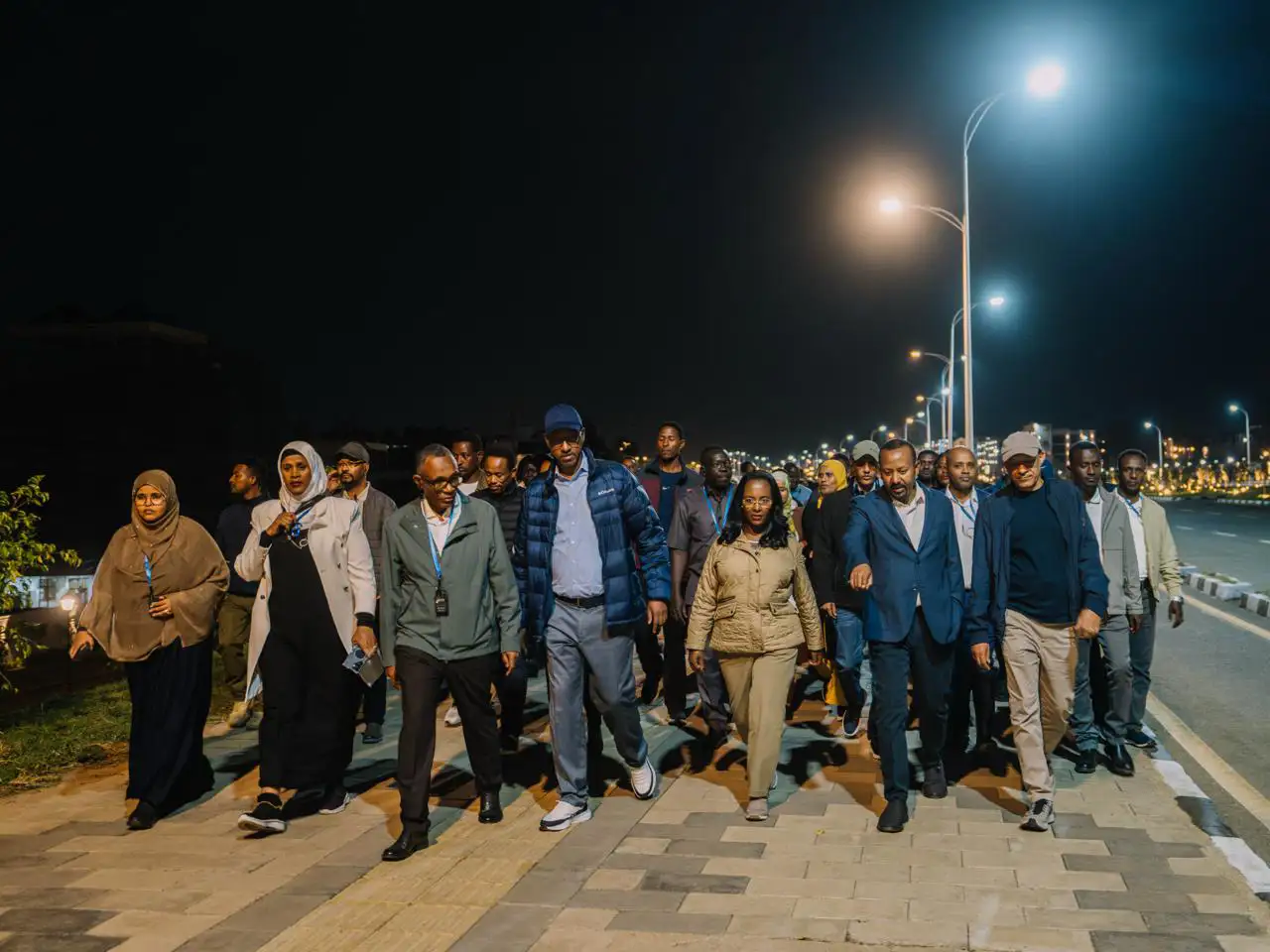
Advancing Rural Transformation and Agriculture
The government’s rural agenda saw significant progress:
- Model Rural Villages: The Prime Minister presided over the handover of model rural villages in the Halaba, Kembatta, Hadiya, and Silte zones. These homes, part of the Rainy Season Voluntary Scheme, are equipped with solar power, biogas, and modern sanitation, significantly improving rural living standards. Regional leaders were tasked with expanding this initiative, targeting 100 new houses per zone by next year.
- Irrigation and Mechanization: In the Oromia Region, the Prime Minister reviewed the rainy season wheat harvest and launched summer wheat production activities, emphasizing the growing adoption of mechanized agriculture. He also inaugurated the Welmel River Irrigation Development Project in Bale Zone. Once fully operational, the project will irrigate 9,687 hectares, benefit 20,000 farming households and enhance food sovereignty.
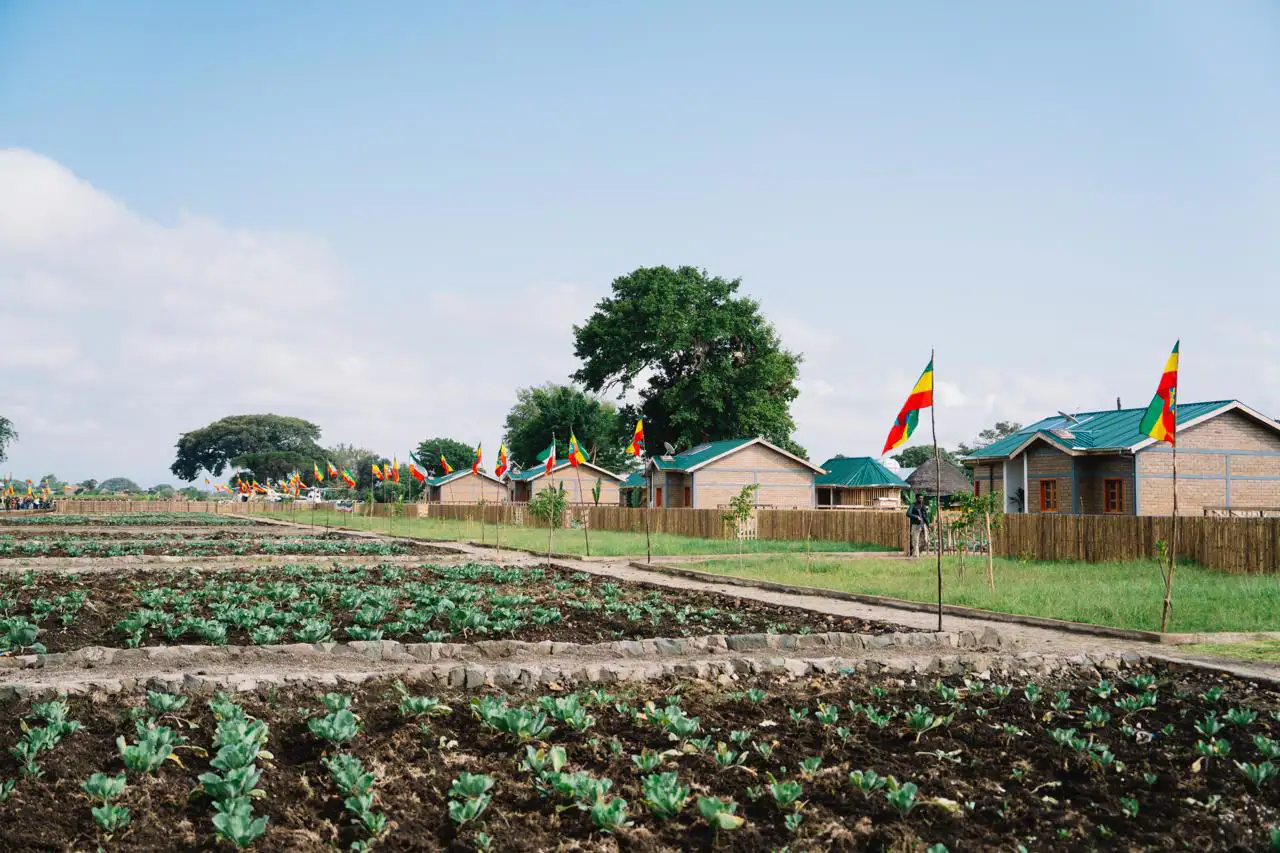
Economic Governance and Judicial Reform
- Macroeconomic Review: At the Koysha Project site, a Council of Ministers review assessed the first 100 days of the 2018 Ethiopian Fiscal Year. The review highlighted the nation’s sustained economic resilience, noting a GDP growth rate of 9.2 percent for the previous fiscal year (2017).
- Judicial Modernization: The Prime Minister announced the upcoming Digital 2030 Strategy and commended the Federal Supreme Court for implementing a Smart Court System. This innovation, which includes automated transcription, virtual hearings, and an integrated case management system enabling online case tracking, is operational in 24 federal branches and is a key step toward transparent and accessible justice.
- Taxpayer Recognition and Accountability: The Prime Minister attended the 7th Annual Loyal Taxpayers Recognition Ceremony, celebrating outstanding taxpayers. He used the platform to reaffirm that tax revenues are being invested in vital public goods and infrastructure and urged all citizens to uphold transparency and reject corruption.
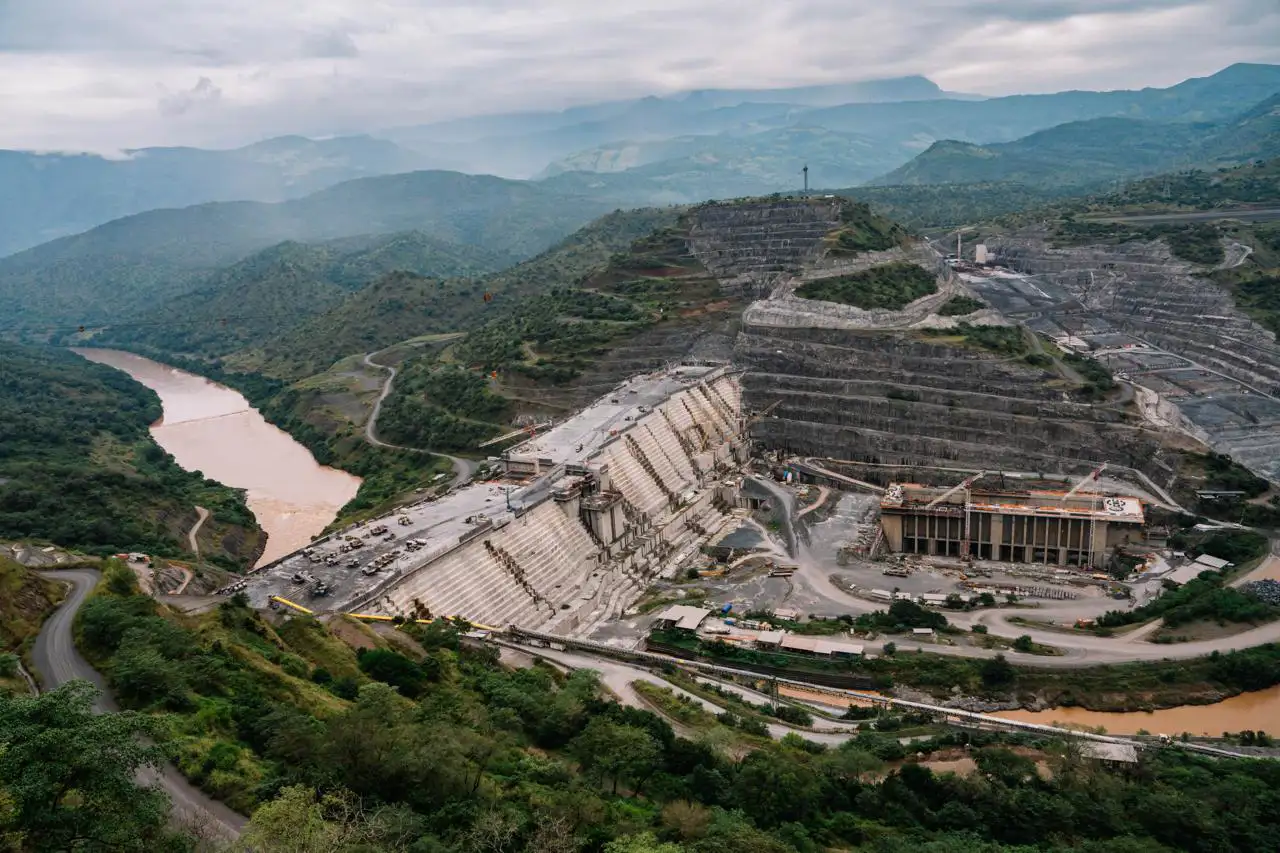
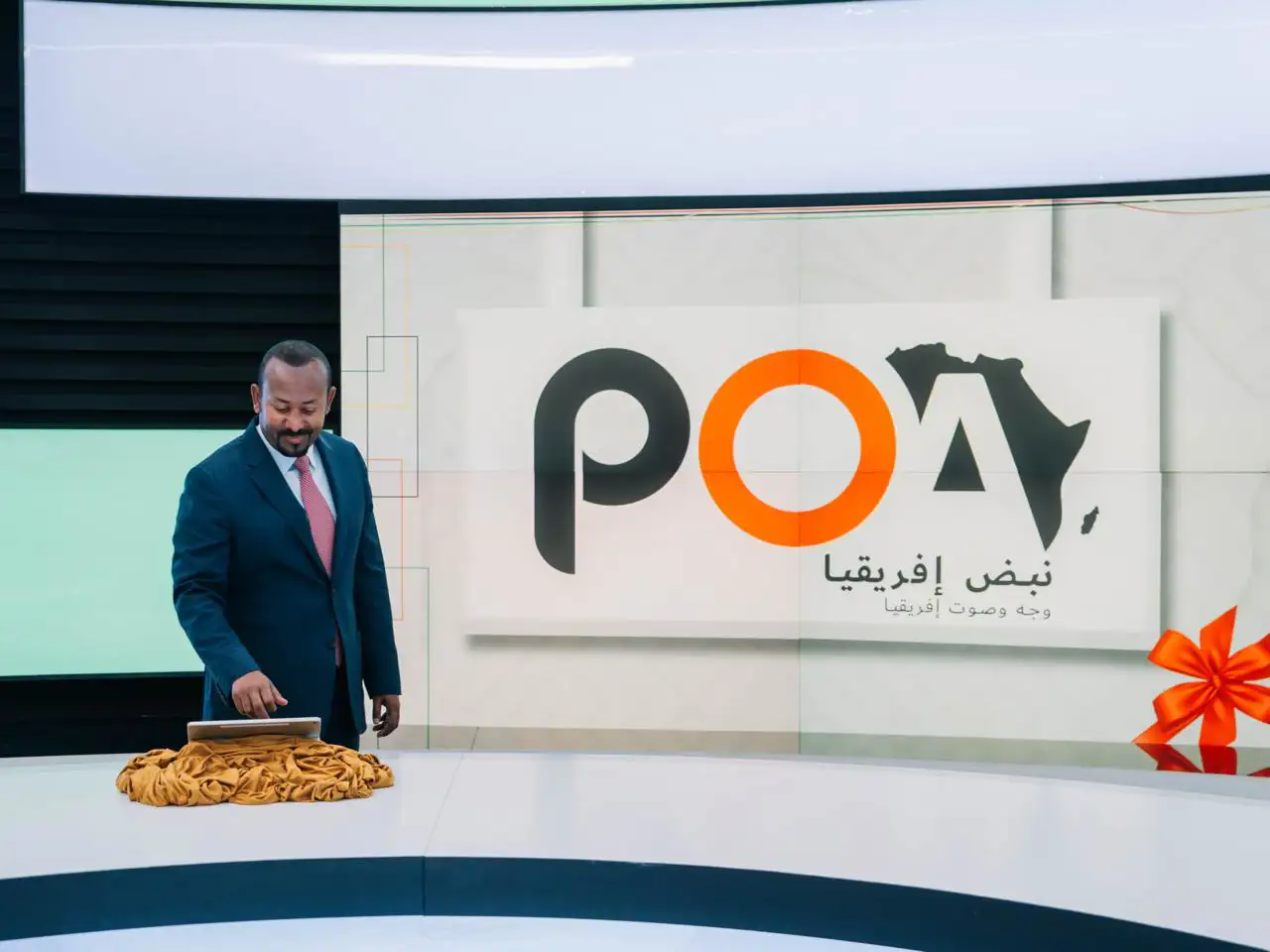
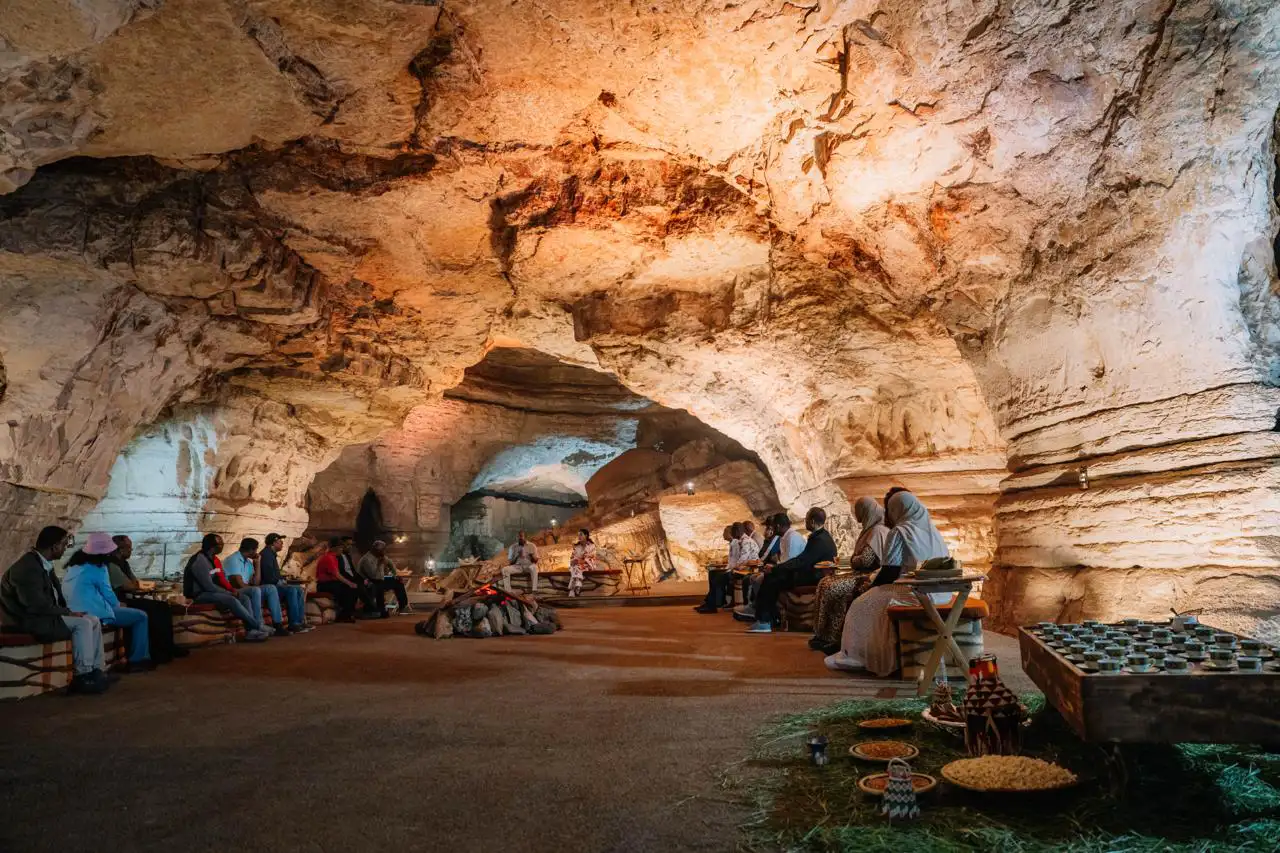
Diplomacy, Media, and Tourism Development
- Pan-African Media Launch: PM Abiy attended the launch of Pulse of Africa, a pan-African media outlet he proposed in 2022. The initiative aims to amplify African perspectives and narratives on the global stage, strengthening continental unity.
- Tourism as an Economic Catalyst: Accompanied by First Lady Zinash Tayachew, the Prime Minister visited the Bale Zone to assess key tourism and infrastructure projects. The delegation toured the ecologically diverse Bale Mountains National Park and reviewed ongoing developments, including the nearly completed Dinsho Lodge and the Sof Omer Luxury Lodge.
- Specific projects reviewed included the Robe–Goro–Sof Omer–Ginir Junction Road Upgrading Project, which enhances mobility, and the Weib River Flood Control Project to ensure year-round accessibility to the Sof Omer Cave.
- The delegation also examined efforts in the Harenna cluster, including the construction of the Rira Eco Lodge, new viewpoints, restaurants, and coffee facilities along the routes leading to Tulu Dimtu, the park’s highest peak.
- The visit concluded at the Fincha Habera Waterfall, where a newly discovered cave system will soon feature a glamping site to promote eco-friendly tourism.
- Parliamentary and International Engagement: In his address to Parliament, the Prime Minister highlighted substantial progress in economic diversification, citing rapid agricultural expansion, record-high export revenues, and increased foreign reserves. He emphasized the government’s focus on training millions of youth in coding and modernizing service delivery through nationwide one-stop centers. He reaffirmed the commitment to stability and democratic consolidation and reiterated Ethiopia’s legitimate concerns regarding the Red Sea and the equitable use of Nile waters.
- On the international stage, PM Abiy led Ethiopia’s delegation to the 24th COMESA Summit in Nairobi, focusing on leveraging digitalization. He also held bilateral discussions with President Hassan Sheikh Mohamud of Somalia and Foreign Minister Dr. Constantinos Kombos of Cyprus.
